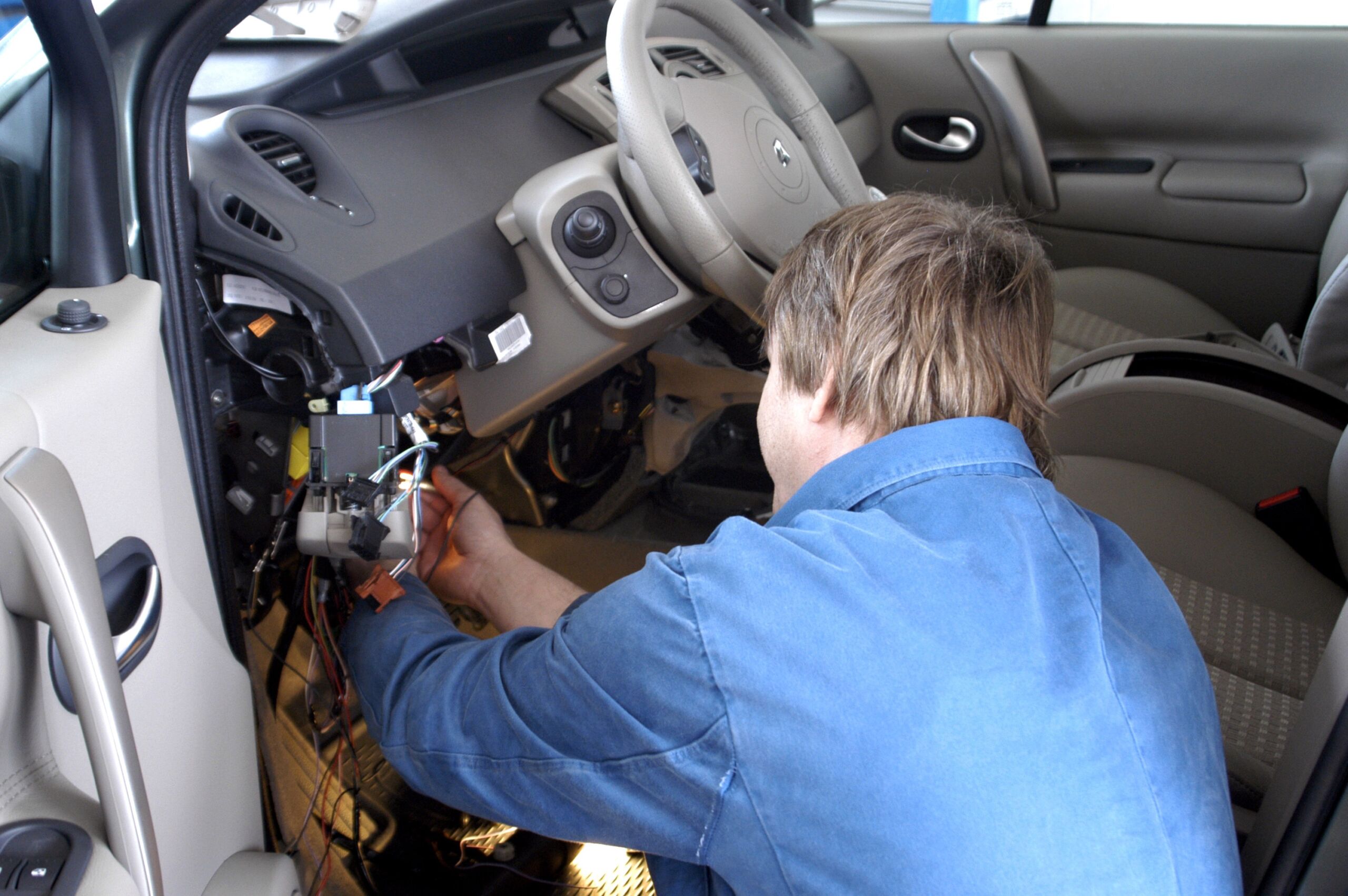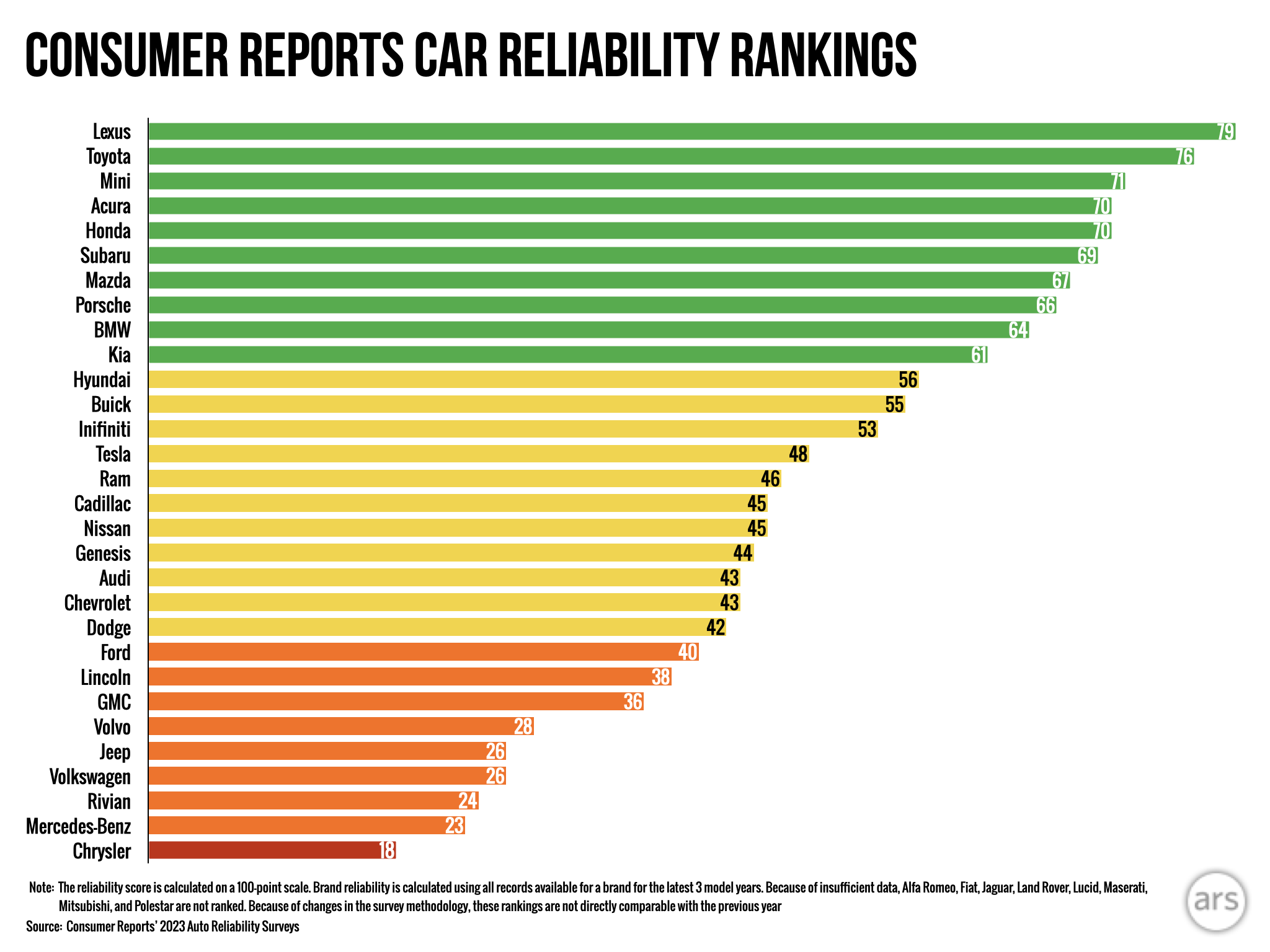Widely accepted wisdom has it that electric vehicles are easier to maintain than those with internal combustion powertrains. It seems intuitive—EVs have many fewer moving parts than cars that have to detonate small quantities of hydrocarbon fuel thousands of times a minute. But the data don't really bear out the idea. In fact, according to data collected by Consumer Reports, EVs are significantly less reliable than conventionally powered cars.
CR is known for buying cars for its own test fleet, but for its annual auto reliability survey, the organization cast a wider net. Specifically, it gathered data from 330,000 owners of vehicles from model year 2000 onwards, and it uses that survey data to generate reliability scores for each vehicle and model year.
The results are a little inconvenient for the EV evangelist. EVs had 79 percent more reliability problems than a gasoline- or diesel-powered vehicle, on average. Plug-in hybrids fared even worse; these had 146 percent more issues on average than the conventional alternative. But simpler not-plug-in hybrids bucked this trend, with 26 percent fewer reliability problems than conventionally powered vehicles.
PHEVs also had the greatest number of potential trouble areas. A conventionally powered car, truck, or SUV has 17 main problem areas, according to CR, including minor stuff like trim rattling and more significant areas like the engine or transmission. PHEVs have all these plus electric motors, a high-voltage traction battery, and charging to contend with.
Hybrids have 19 potential trouble areas—all the above minus the charging problem—and EVs have just 12, since they go without things like internal combustion engines, fueling systems, or transmissions. (Yes, if you want to be very pedantic you could point out the Porsche Taycan and Audi e-Tron GT have two-speed transmissions, but no one will be impressed.)



 Loading comments...
Loading comments...
